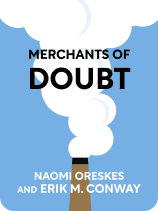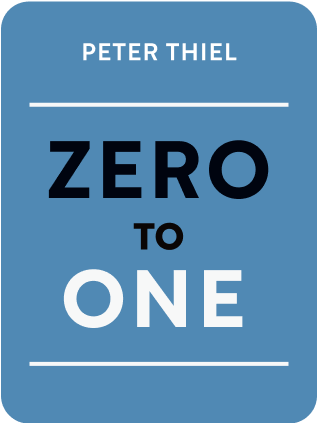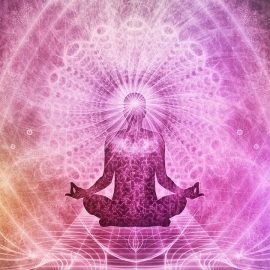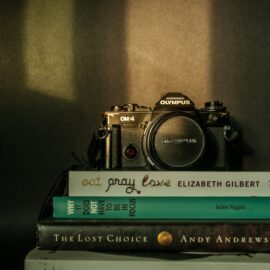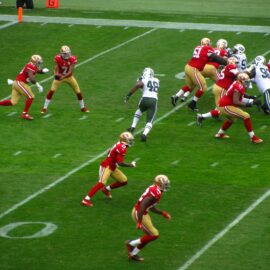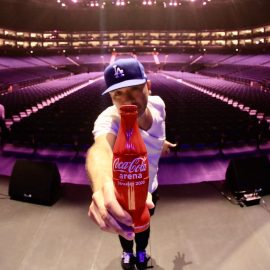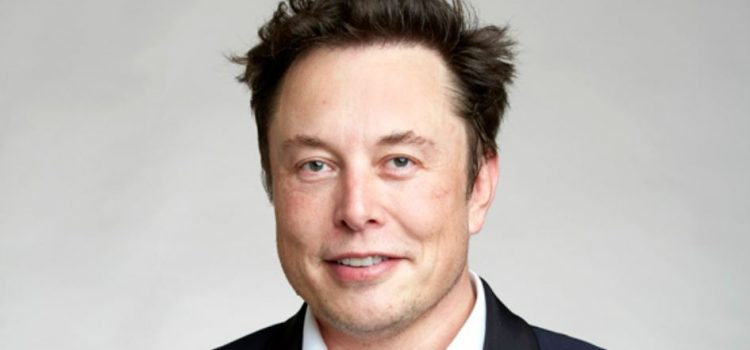

This article gives you a glimpse of what you can learn with Shortform. Shortform has the world’s best guides to 1000+ nonfiction books, plus other resources to help you accelerate your learning.
Want to learn faster and get smarter? Sign up for a free trial here .
What are Elon Musk’s favorite books? How have books helped him become the successful billionaire he is now?
Whenever someone asks the CEO of Tesla and SpaceX how he learned to build rockets, Musk simply says, “I read books.” Elon Musk’s favorite books range from sci-fi and fantasy novels to deep-dives into artificial intelligence, so he has quite the library to refer back to when building rockets or designing sustainable cars.
Keep reading for a list of Elon Musk’s favorite books, most of which he’s recommended on his Twitter account or in interviews.
Elon Musk’s Book Recommendations on Twitter
Elon Musk has often used Twitter to share his favorite books. Now that Musk has bought Twitter for a whopping $44 billion, he more than likely will be using Twitter as his own personal book club.
Let’s look at Elon Musk’s favorite books that he’s recommended on the social media platform, divided into three genres: science and technology, business and biographies, and sci-fi/fantasy novels.
Sci-Fi/Fantasy Novels
In a profile by The New Yorker, Musk claimed that he was so picked on as a kid in South Africa that his only escape was the fictitious worlds of science-fiction and fantasy novels. Musk’s love of fiction books is so strong that he named some of his Tesla and SpaceX products after names coined in sci-fi novels.
Let’s look at Elon Musk’s favorite books that inspired him to ambitiously turn science fiction into reality.
The Lord of the Rings
The Lord of the Rings is cited as one of Elon Musk’s favorite books because of J. R. R. Tolkien’s attention to detail when it comes to world-building and incorporating philosophical ideas about the human condition into his fantasy novel. Set in the fictional Middle-earth (which is described as sometime in the distant past), The Lord of the Rings is a classic hero’s journey story with hobbit Frodo Baggins vowing to destroy the One Ring that has unstoppable power.
Musk often expresses his love for The Lord of the Rings on Twitter, claiming it was his go-to book when he wanted to escape the bullying he faced. He once tweeted, “I know it’s cliche, but LotR is my favorite book ever 🙂 Want to see the set and take my kids on tour of greater [New Zealand].”
Dune
Dune is set in a near-future where noble houses control their own planets. While quite a hefty read of complex and difficult world-building, Dune explores the central ideas of politics, technology, and environmentalism—all of which Musk has a profound interest in.
Even though Dune is a sci-fi novel set in the future, you won’t find any supercomputers or artificial intelligence in its world. The story explains that there was once an ideological war on artificial intelligence—one side of the humans believed it was harmless to rely on superintelligence for natural aspects of life, while the other side believed superintelligence would destroy humanity.
Living up to his reputation of being a hard advocate against artificial intelligence, Musk praised the Dune series for touching on the subject. He tweeted, “Dune series by Herbert [is] also brilliant. He advocates placing limits on machine intelligence.”
Science and Technology Books
Elon Musk warns against creating artificial intelligence, citing technological advancement as a step towards disempowering humanity. Throughout his career, he’s recommended many books that will educate you on the harm of artificial intelligence. In addition, he offers other books on controversial subjects, such as humanity’s impact on global warming.
Here are three of Elon Musk’s favorite books on technology and science.
Life 3.0
In Life 3.0: Being Human in the Age of Artificial Intelligence, cosmologist Max Tegmark argues that artificial intelligence (AI) doesn’t exactly mean the downfall of humans. While emphasizing that it’s definitely possible, there are safe ways to ensure that humans and advanced technology can have a future together. “Life 3.0” refers to the third phase of human development—Life 1.0 refers to the initial biological origins, Life 2.0 refers to the cultural and adaptive development of humans, and Life 3.0 is the hypothetical development of technological intelligence.
Life 3.0 explores how the different possible futures if AI becomes advanced enough to match with humans. In addition, you’ll learn about the change in societal structures to accommodate machine intelligence and what humans need to do to ensure their survival against the rise of these machines.
Musk recommended Life 3.0 on Twitter: “Worth reading Life 3.0 by [Max Tegmark]. A.I. will be the best or worst thing ever for humanity, so let’s get it right.”
Superintelligence: Paths, Dangers, Strategies
In Superintelligence, Swedish philosopher Nick Bostrom says that the hypothetical “superintelligence” (human-level artificial intelligence) will eventually surpass humans as the primary lifeform on Earth by 2105. Superintelligence explains the journey of creating artificial intelligence, where we are right now in developing it, and the moral issues that arise from these developments.
Of Superintelligence, Musk said, “Worth reading Superintelligence by Bostrom. We need to be super careful with AI. Potentially more dangerous than nukes.
Our Final Invention
Artificial intelligence is a concept that many people have questions about, but the answers are still widely debated. One of these questions is, “How ethical is artificial intelligence, and are we in danger of it?” In Our Final Invention, James Barrat sets out to answer this question. Barrat includes both the benefits and risks of artificial intelligence that matches or exceeds human intelligence, but remains a cautious tone about the technology throughout the book.
Musk spoke on Twitter about his distaste for artificial intelligence and recommended Our Final Invention saying, “While on the subject of AI risk, Our Final Invention by [James Barrat] is also worth reading.”
Merchants of Doubt
Merchants of Doubt
by Naomi Oreskes and Erik M. Conway
63 min reading time
48.7k reads
audio version available
Merchants of doubt are people or organizations who discredit science that threatens their agenda or ideology. The first merchants of doubt were members of the tobacco industry—when scientists discovered that smoking caused cancer, which was bad for businesses. It was also bad for capitalism in general because it suggested that the market wasn’t self-regulating, and the lack of regulation was killing people.
In Merchants of Doubt, science historians Naomi Oreskes and Erik M. Conway study the doubt-mongering techniques used in several other important “debates”—nuclear disarmament, acid rain, the ozone layer, climate change, and the pesticide DDT. These techniques are still in use today.
Musk agrees with Conway and Oreskes’s take on the global warming controversy being similar to earlier controversies about tobacco smoking: “Worth reading Merchants of Doubt. Same who tried to deny smoking deaths [are] denying climate change.”
Musk’s Other Recommendations on Twitter
Given that he prefers science (both real and imagined), it’s not surprising that those are the popular genres among Elon Musk’s favorite book recommendations. However, he does occasionally tweet about other books that inspired him.
Screw Business as Usual
Billionaire and entrepreneur Richard Branson has one goal he wants to achieve: flip capitalism upside down by focusing more on caring for people and the planet rather than profit. In his book Screw Business as Usual, Branson writes how he’s working to deconstruct capitalism and why you should change your perspective on our capitalistic society.
Some readers might think it’s a bit hypocritical for a billionaire such as Musk to recommend a book written by a billionaire who achieved his fortune through the same capitalistic society he opposes. However, Branson’s guide to an eco-friendly way of doing business aligns with Musk’s attempts at making SpaceX and Tesla sustainable ventures.
Like many of his other book reviews, Musk took to Twitter to give his take on Screw Business as Usual: “Liked “Screw Business as Usual” a lot. This approach should be taken to heart by all, as it really is the smart move.”
Benjamin Franklin: An American Life
In this intimate biography, Walter Isaacson (the best-selling author of many other biographies about prominent figures) gives the full scope of Benjamin Franklin’s life from his time as a runaway apprentice to becoming one of the most influential political leaders in America. The witty, in-depth look into Franklin’s life and work shows how he helped create America’s identity and values, which still resonate today.
Musk kept his Twitter followers updated during his journey of reading Benjamin Franklin: An American Life. He first tweeted, “Am reading a great biography of Ben Franklin by Isaacson. Highly recommended.
Elon Musk Book Recommendations Outside of Twitter
When he’s not tweeting about his favorite books, Musk still manages to talk about books during interviews or editorial reviews. Below you’ll find more of Elon Musk’s favorite books, ranging from a science-fiction alien adventure to captivating biographies and business books.
The Hitchhiker’s Guide to the Galaxy
As an ambitious boy growing up in South Africa, it’s understandable why Musk looked to Douglas Adams’s book The Hitchhiker’s Guide to the Galaxy for answers to his big questions. The story follows Arthur Dent, the last surviving man of Earth, who hitchhikes around outer space to discover the truth about Earth’s existence. While it sounds like a funny space adventure on the surface, The Hitchhiker’s Guide to the Galaxy actually provides satirical insight into philosophy and religion, and reflects on what it truly means to be human.
The Hitchhiker’s Guide to the Galaxy is often regarded as one of Elon Musk’s favorite books. In an interview with Alison van Diggelen, host of Fresh Dialogues, Musk said, “I read Hitchhiker’s Guide to the Galaxy which is quite positive, I think, and it highlighted an important point which is that a lot of times the question is harder than the answer.”
Einstein: His Life and Universe
Also authored by Walter Isaacson, Einstein: His Life and Universe details the rise of Albert Einstein as he uses his imagination to become one of the most important figures in the field of science. It’s no wonder Musk looks to Einstein as an inspiration. His biography shows that while he was often laughed at for questioning conventional wisdom, he eventually proved them wrong by combining creativity and intelligence to answer the world’s biggest questions.
When speaking about the influential books he read to build his career, Musk recommended Einstein: His Life and Universe, saying, “I didn’t read, actually, very many general business books, but I like biographies and autobiographies, I think those are pretty helpful. Actually, a lot of them aren’t really business. […] I also feel it’s worth reading books on scientists and engineers.”
Howard Hughes: His Life and Madness
Authored by Donald L. Barlett and James B. Steele, Howard Hughes: His Life and Madness dives deep into the mind of the business magnate and filmmaker that infamously became known for his reclusiveness and eccentric behavior later in life. In addition to his work as a film producer and businessman, he became one of the most important figures in aviation history by breaking many world records, one of which includes flying around the world in 91 hours.
In an interview with CNN, Musk said that he read Howard Hughes’s biography and made a snide remark about the pilot and business magnate’s behavior in his later years: “Definitely want to make sure I don’t grow my fingernails too long and start peeing in jars.”
Zero to One
Zero to One is entrepreneur and venture capitalist Peter Thiel’s unconventional advice for technology startups. Thiel, a co-founder of PayPal and the first outside investor in Facebook, argues that technology has stagnated. Most new companies improve incrementally on existing products, but Thiel argues that the most valuable and game-changing startups create something new. In other words, they move the world from zero to one. Creating new things is not only the best path to profit—it’s also the path to human progress.
Despite Musk and Thiel being competitors (Thiel replaced Musk as CEO of PayPal while Musk was on vacation), Zero to One was praised as one of Elon Musk’s favorite books in an editorial review: “Peter Thiel has built multiple breakthrough companies, and Zero to One shows how.”
Takeaways
There are some obvious themes among Elon Musk’s favorite books. Artificial intelligence and fantastical ideas are at the core of these books because they represent what Musk is trying to achieve with his big ideas. He may be a person who always finds himself in controversy, but there’s no denying his reading habits have gotten him far in life.

Want to fast-track your learning? With Shortform, you’ll gain insights you won't find anywhere else .
Here's what you’ll get when you sign up for Shortform :
- Complicated ideas explained in simple and concise ways
- Smart analysis that connects what you’re reading to other key concepts
- Writing with zero fluff because we know how important your time is

